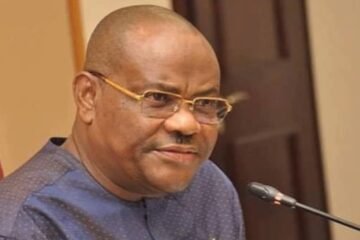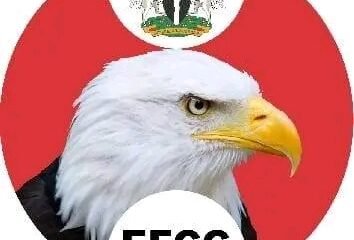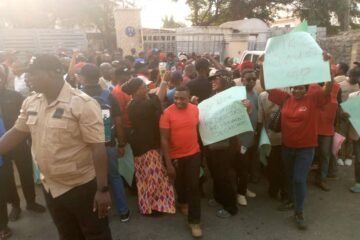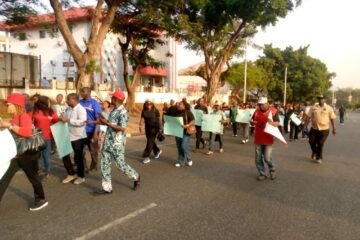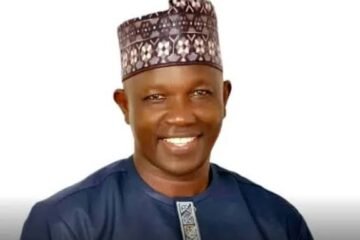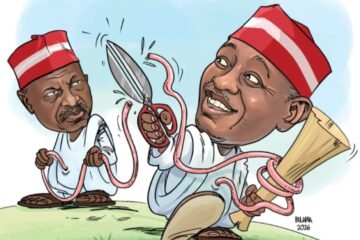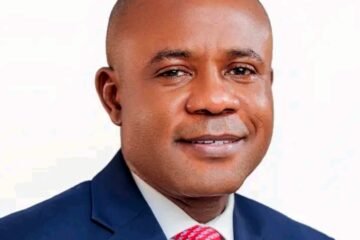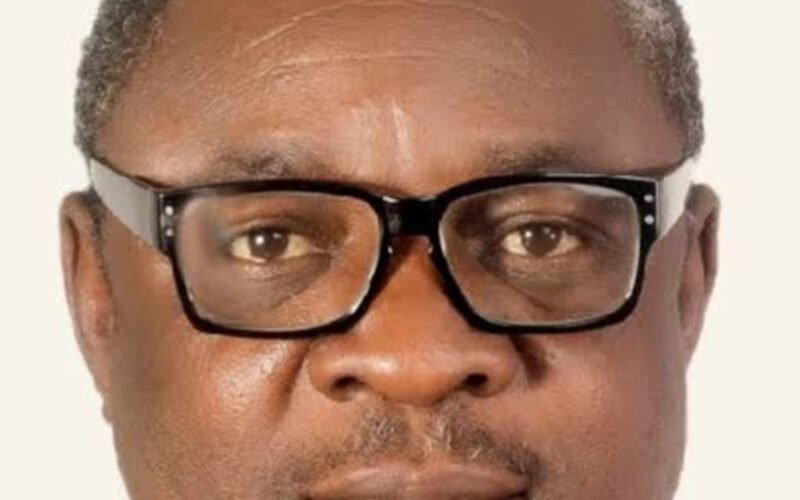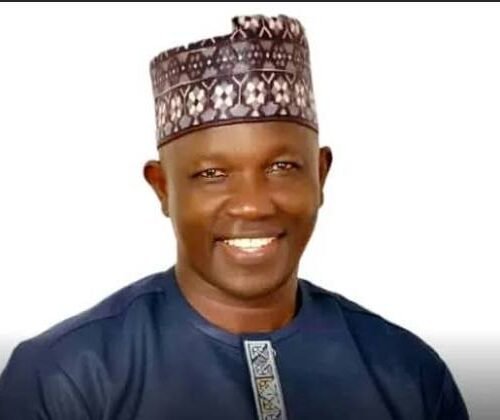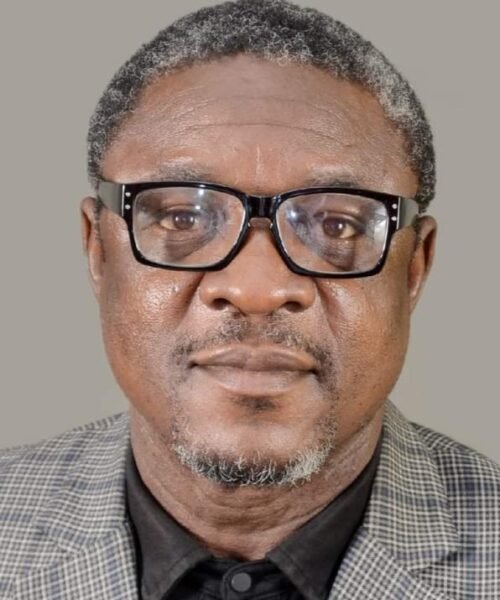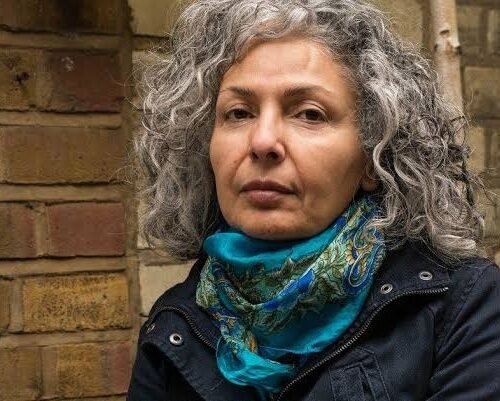By SHEDDY OZOENE
The second anniversary of Peter Mbah’s tenure as governor of Enugu State was significant in many ways. There was a certain uniqueness with the celebrations but the most noteworthy is the fact that it was attended by his predecessor in office, Ifeanyi Ugwuanyi. It is the first time such was being recorded in the state in this Fourth Republic. It is also remarkable because it signified that the governor has maintained a cordial relationship with his predecessor since assumption of office 2 years earlier.
Before then, on his 61st birthday last March 20, Governor Mbah not only led officials of the state on a visit to felicitate with Ugwuanyi, he issued an effusive message on his social media handles, celebrating Ugwuanyi’s ‘statesmanly dispositions.’
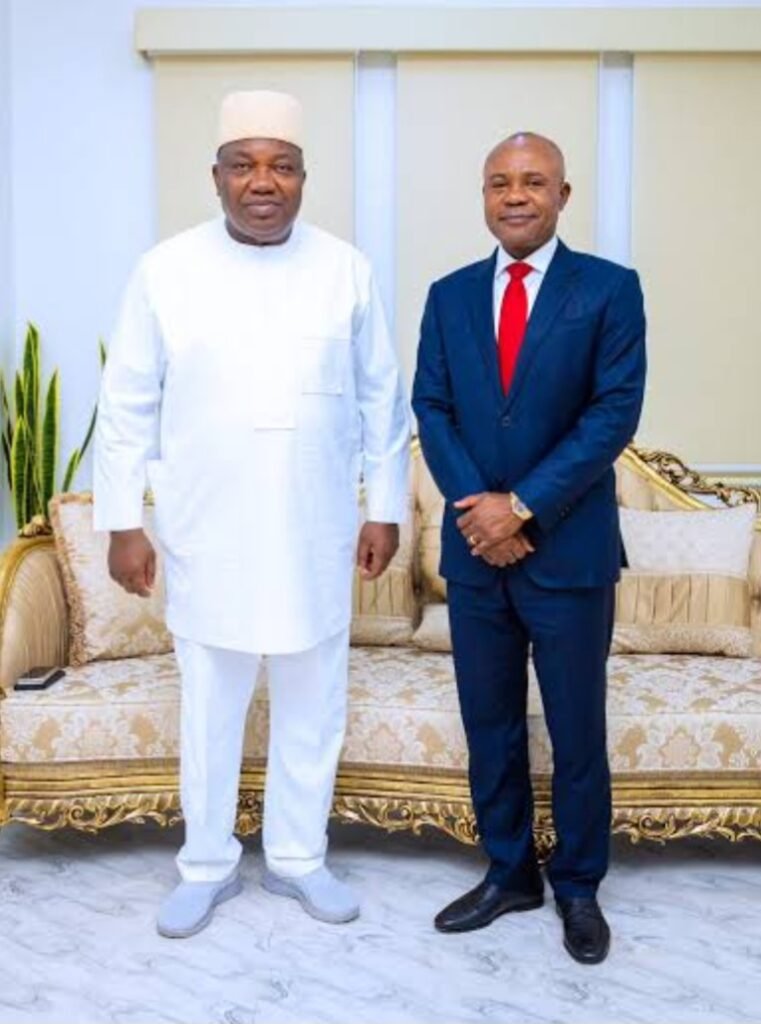
It is still a matter of conjecture who – between Mbah and Ugwuanyi—is responsible for this curious state of affairs, something that never happened for nearly 26 years. As the history of the state reveals, no governor of the state since 1999 ever enjoyed a cordial relationship with his godfather/predecessor lasting as long as 2 years. I know this from my experience writing the book, CLASH OF INTERESTS, on the issue of godfatherism in Enugu State. The 2001 book, which details the state’s political history, chronicles the transitions since 1999, the men who played godfathers, their influence on their successors/godsons, and how the ensuing struggles for control gave rise to political crises.
The present scenario is markedly different, not necessarily because Ugwuanyi does not possess enough testosterone for a political dogfight, as some people insinuate. It is either Ugwuanyi, quite unlike past governors who also hand-picked their predecessors, is not interested in playing the stiff-necked godfather, or that Mbah has played the loyal godson these past 2 years.
Back to my book. The idea of writing the book came about first as the account of the making of the administration of Ifeanyi Ugwuanyi as
governor of Enugu State. As a spectator with a front-row seat, I had observed the many intrigues that played out during the campaign and the various developments that took place before his eventual coronation on May 29, 2015.
I actually started the book in 2016 but paused momentarily in 2017 when the political developments of that year altered the storyline in a profound way. The gap in the relationship between the governor and his predecessor in office, Sullivan Chime, had widened to the point that the usually restrained Chime started making uncomplimentary statements against his successor in office and the Peoples Democratic Party he had led for eight years. What started as a rumour that both leaders had parted ways became a reality in May 2017 when Chime quit the party altogether and joined the rival All Progressives Congress (APC).
The parting of ways was a big surprise to political watchers in Nigeria, even if such had repeatedly happened before in Enugu State. Such quarrels between new governors and their predecessors/godfathers, leading to the struggle for political territory, have been a recurring decimal in Enugu politics. The battle can be complex, divisive and messy.
It has turned out to be one of the peculiarities that have defined the politics of Enugu State since the state was created.
A bit of the past will help illustrate how godfatherism became entrenched in the state’s politics.
When Enugu State was created in 1991, it was born into the hands of two bitter political rivals. The State’s political foundation was deeply shaped by Chief Jim Nwobodo and Chief Christian Onoh. Their rivalry dated back to the Second Republic when Nwobodo defeated Onoh in 1979 to become governor of old Anambra State. Onoh returned in 1983, determined to reclaim power, and after a fiercely contentious election on August 13, 1983, he triumphed. However, his victory was short-lived as the military coup of December 31, 1983, led by Brigadier Muhammadu Buhari, dissolved all democratic structures.
When General Ibrahim Babangida created Enugu State on August 27, 1991, the old rivalry resurfaced. With just five months between the state’s creation and the first governorship election, aspirants fell back on the political structures of the two rivals, now transformed into kingmakers. The Nwodo family, under the National Republican Convention (NRC), enjoyed Onoh’s backing, while Gbazueagu Nweke Gbazueagu of the Social Democratic Party (SDP) drew support from Nwobodo. Their old acrimony again defined the contest which was eventually won by Okwesilieze Nwodo.
The 1999 transition to democracy, under General Abdulsalami Abubakar, marked the final face-off between the two. Nwobodo, influential in the Peoples Democratic Party (PDP), backed Dr. Chimaroke Nnamani, secured the governorship ticket against Victor Nduka Agu. Onoh aligned with the All Peoples Party (APP), but his influence was undermined when younger elements in the party, led by Alexis Anielo and his colleagues in the defunct United Nigeria Congress Party (UNCP), imposed Gbazueagu as candidate against his wishes. He was rather lukewarm in supporting Gbazueagu, and in the ensuing election proper, Nwobodo’s influence ensured a PDP victory, and Nnamani became the first governor of Enugu State in the Fourth Republic.
In both elections 1991 and 1999, the names of Nwobodo and Onoh were more prominent than those of the candidates. After 1999, the direct influence of both men waned, but they left behind a legacy of political godfatherism.
Though Nwobodo sought to remain the state’s political kingmaker, his falling out with Nnamani shifted power away from him. It established a pattern of political succession struggles that still defines Enugu politics today.
Nwobodo had gone to the moon and back, literally, all in the effort to install him as governor, but both men fell out within a few months of the 1999 election. With time, Nnamani totally separated from him, decimated his political structure, and threatened his return to the Nigerian Senate in 2003. The quarrel was so intense that subsequent elections of 2003 and 2007 became theaters of unimaginable violence.
Nwobodo eventually had to decamp to the United Nigeria Peoples Party, UNPP, on whose platform he contested the election of 2003.
Nnamani suffered the same fate in the hands of his protégé and political godson, Sullivan Chime, who served him as Attorney-General and Commissioner for Justice and whom he installed as his successor in 2007 against all expectations. Their quarrel started even before Chime’s inauguration in 2007 and he did so much, subsequently, to obliterate Nnamani’s legacies in the state, not least the Ebeano political vehicle on which he rode to power and which he all but dismantled while hoisting his own, the Total Mandate.
With time, it became obvious to Nnamani that he would similarly be denied a return ticket to the Senate in 2011, so he quit the PDP and floated the Peoples’ Democratic Congress (PDC). He lost the Enugu East senatorial contests of 2011 and 2015, which he contested on the new party’s platform, to one of his ‘rebellious’
political godsons, Gil Nnaji of the PDP, who was a local government chairman in his time.
In 2015, Chime sold the candidature of Ifeanyi Ugwuanyi so passionately to the people of the state. He had told them he could not have hoped for a better replacement, one who would continue in the same trajectory of the state’s wholesome development. For a man who performed far above average, his marketing was convincing and Ugwuanyi won easily. It was, therefore, shocking when he separated from Ugwuanyi in March 2017. He did not bother to disclose his frustrations with Gov Ugwuanyi, but it was obvious that his successor’s decision to reverse some of his decisions and renege on key promises of continuity in the execution of some legacy projects was fundamental. Less than a year
out of office, Chime fought back by making unsavory comments about the party and the man whose candidature he so passionately promoted. Although his departure from the PDP was comparatively less acrimonious, it followed the same pattern as the previous ones.
And this is why the present cordially between Ugwuanyi and Peter Mbah, two years and still counting, is cheering for the Ndi Enugu. It is the breath of fresh air for the people who have had to contend with unnecessary acrimony among their leaders in the past.
Many even bet that Mbah’s superlative performance in the past 2 years owes to the absence of such distractions. Like I said earlier, it is either Ugwuanyi is not our usual godfather, or that Mbah is playing his part as a loyal godson. It is also possible that the agreement that led to the transfer of power in 2023 did not give room for meddlesomeness.
Whatever it is, my two pence bet is that Enugu is the better for it.
Sheddy Ozoene is Editor-In-Chief of People&Politics, Nigeria’s leading publication on people, politics and policy.

